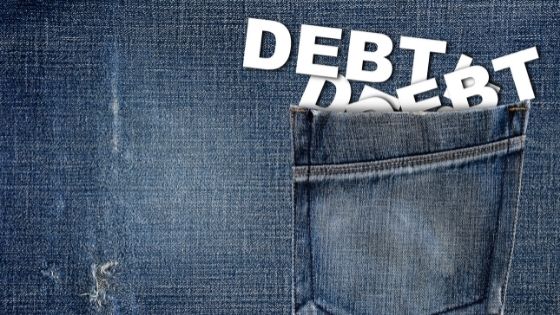Debt is an inevitable part of life, but that doesn’t mean you should ignore it or that debt must be bad for your financial health. By taking steps to manage your debt, you improve your financial situation and the stress levels in your home and family life. The following are 5 simple approaches to minimize your financial debt.


Assess Your Debt
The first step towards minimizing debt is knowing where you stand financially. Here are some common types of debt that people occur throughout their life:
● Credit Card Debt
Credit cards typically carry the highest interest rates among personal loans. It should be the type of debt that you quickly do away with as it can get out of hand if left not monitored.
● Mortgages or Home-equity Debt
If you’ve purchased a home or refinanced, you likely have a mortgage and possibly other loans on the property that have accumulated over time.
● Auto Loan Debt
These are often taken out by drivers who can’t afford to purchase a car outright.
● Personal Loan Debt
It is usually used for major purchases or debt consolidation.
● Student Loan Debt
You may have taken out student loans while pursuing your education and paying them while repaying other debts. Your best option is to prioritize your student loan payments above all others.
How to Minimize Your Financial Debt
● Develop a Debt-Repayment Plan
Once you’ve assessed your debt, it’s time to create a repayment plan. Develop good money management skills. For example:
If you’re carrying more than one credit card balance, set a goal of paying off the smallest balance within six months. Also, try making interest-only payments on your credit cards to put more money toward the principal. If possible, pay off your credit cards twice per month instead of once per month.
If your mortgage balance is larger than the value of your home, pursue a repayment plan. It should allow you to pay down some of your principal but continue to make timely monthly payments.
If you’ve taken out student loans, don’t depend on financial aid for repayment. Alternatively, note where you can cut spending to allow you to repay these loans right away. If things get difficult, you may opt for a debt relief like debt consolidation Burnaby to assist you to bring the situation back under control.
● Stop Using Credit
Learn how to live without credit. Credit cards are easily accessible, but this convenience comes at a price. Don’t carry a balance on your credit card for more than six months. It will lead you to pay more than you originally owed.
● Build an Emergency Fund
After you’ve eliminated credit cards, take steps toward building an emergency fund. It should not only see you through unforeseen expenses but also help keep debt in check. A fully-funded emergency savings account ensures that money is available for the things that matter most.
Aim to save at least six months’ worth of living expenses from knowing you have a cushion in case of tough times. You can start building your fund by setting aside monthly or weekly, which will increase over time if you’re consistent.
When an emergency does occur, resist the temptation to put it on a credit card and instead use the money you’ve saved.
● Live Within Your Means
One of the most important things to remember when paying off debt is that you need to live below your means. It doesn’t mean living hard or forgoing all the things you love. It means being mindful of how much you’re spending each month.
Track your expenses for a month to see where your money is going. Are you eating out every day? Buying new clothes every week? Going to the movies every weekend? If so, you need to cut back and redirect that money toward your debt repayment goals.
It’s also important to be realistic about what you can afford. Just because you have a high salary doesn’t mean you can afford a home or a new car. Save up for what you want instead of putting yourself further into debt.
Being patient and living below your means will help get you closer to becoming debt-free. As you become more familiar with your spending habits, you’ll realize that not everything is worth buying.
By following these tips, and staying patient, you can pay off debt faster than before. You need to put in the work and stick to your plan.









